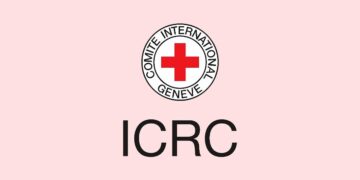The special adviser to president Bola Tinubu on Revenue, Zacch Adedeji, has said the present administration will ensure that every kobo of the nation’s revenue counts.
He made this disclosure yesterday in Abuja at the one-day hybrid sensitisation workshop on the published “Guidelines for Private Sector Response to Illicit Financial Flow (IFF) Vulnerabilities in Nigeria” organised by the Independent Corrupt Practices and Other Related Offences Commission (ICPC).
ICPC spokesperson, Azuka Ogugua said in a statement that Adedeji also noted that the president believed in fiscal discipline and would ensure judicious utilisation of the country’s revenue and resources.
He said, “The president believes in fiscal discipline which rests on the accurate prediction of revenue. If the government can’t count your money, the government can’t allocate it and if the government can’t allocate it, it can’t manage it. The administration of President Bola Ahmed Tinubu will make every kobo of our revenue count.”
Earlier in his keynote address at the sensitisation workshop, the special adviser pledged that the government would strengthen the country’s fight against illicit financial flows (IFFs).
In his welcome remarks, the ICPC chairman, Prof. Bolaji Owasanoye said that IFFs was a drain on Nigeria’s potential revenue accretion and foreign exchange reserves.
This, according to him, has resulted in exchange rate depreciation, inflation and increase in cost of servicing external debts in addition to negatively impacting on the cost of imported goods like petroleum with its attendant radical consequences on daily livelihood experience of ordinary citizens.
On the way out of IFFs trap, the ICPC boss called for diverse measures to tackle the menace in all its forms and in order to improve Nigeria’s quest for domestic revenue increase relative to the size of her economy and in spite of the volatile global economic and financial system.
He assured that the commission would continue to focus attention on practical measures to enhance Nigeria’s ability to stem IFFs, reduce capital flight and enhance the country’s capacity for domestic resource mobilisation by identifying vulnerabilities and other weaknesses in the systems and processes of agencies and institutions within the public and private sector and advising reforms to mitigate losses.











